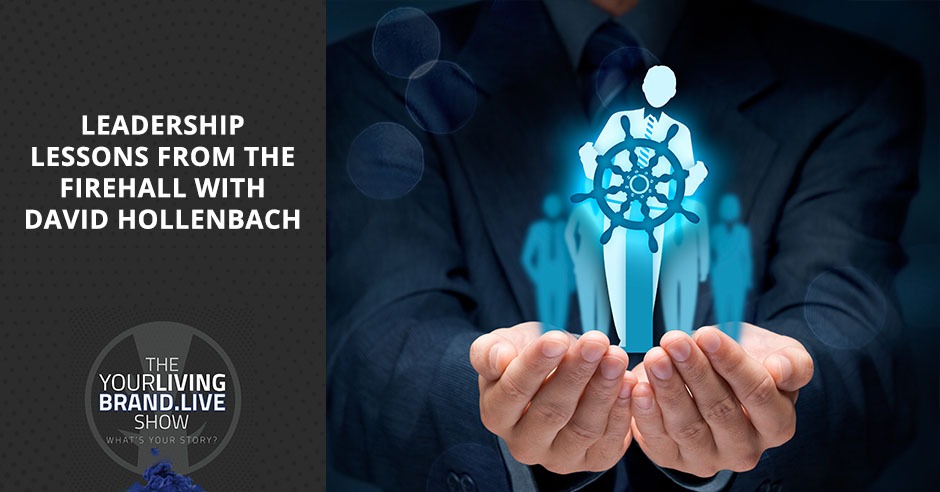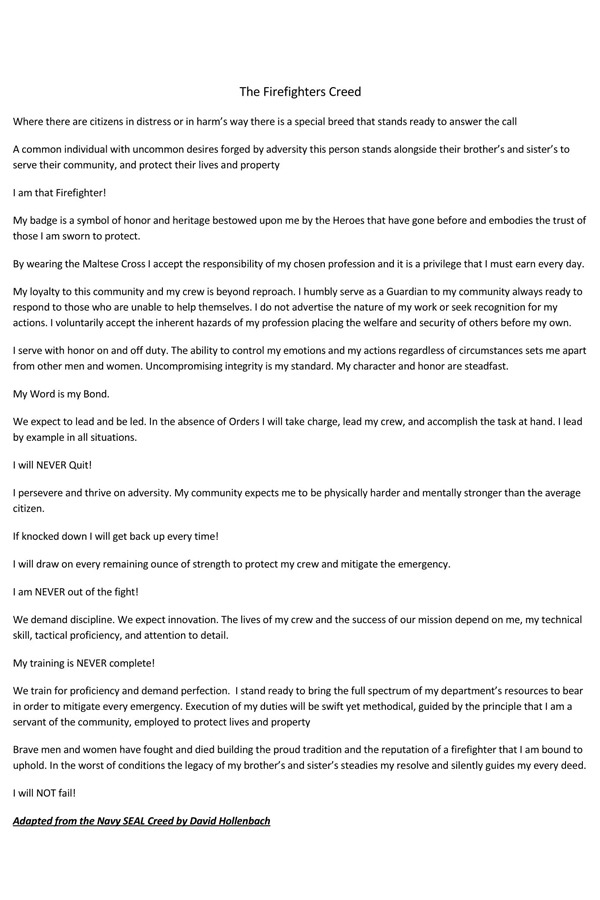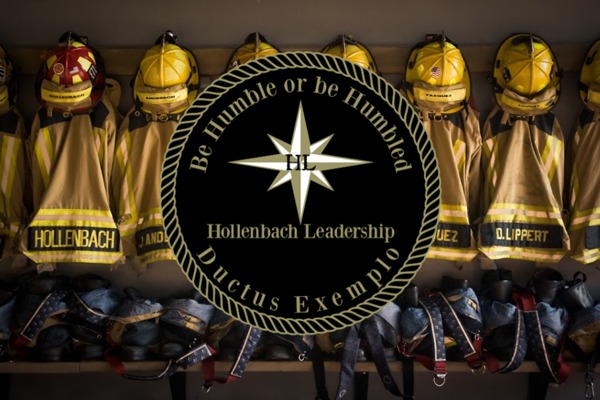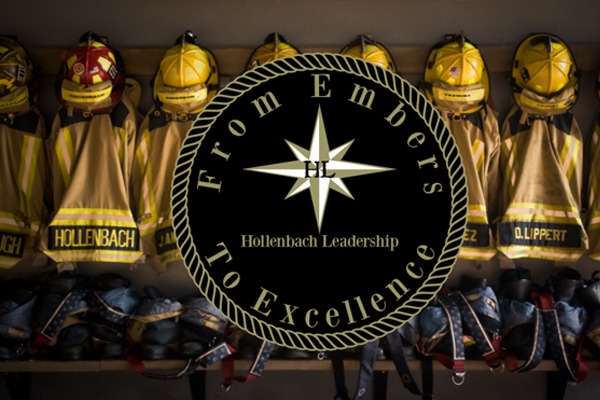
Effective leaders know how to get their people’s trust, allowing them to feel valued and put their best selves forward in what they do. How do you do that? In this episode, we’re going to learn how as we talk about the lessons in leadership from the firehall. Ben Baker and David Hollenbach dive deep into the leadership style that’s going to help us scale and succeed. Retired Battalion Chief David Hollenbach is an experienced, decorated Chief Officer with a 23-year history of working in the public safety industry. David started with reading leadership books, consuming every piece of information from military leadership to fire service leadership and corporate leadership. He explains the fundamentals in his leadership programs and how we could shape those lessons and apply them to our businesses. Let’s listen to learn how we could be the best versions of leaders in this society.
—
Listen to the podcast here:

Leadership Lessons From The Firehall With David Hollenbach
[00:01:08] Thank you all for coming back to the show. I love that you find me on LinkedIn, you communicate, you sit there and say, “I liked this episode but I would like to talk to this person. I have questions about this. You do this well but we would like to see you do this better.” It is wonderful that you are a passionate audience and I love you for it. I’ve got another treat for you. I’ve got David Hollenbach from Hollenbach Consulting. We are going to talk about leadership from the firehall. David, welcome to the show.
[00:01:44] Thank you very much for having me. I appreciate the opportunity to talk to you and your audience.
[00:01:50] You and I had a wonderful conversation on your podcast, From Embers To Excellence. We had such a wonderful time. I had to have you on to the show. What I want to talk about is, you are retired from the fire department and you are ex-military but I want people to have a better idea of your history. Where did you come from? Where are you now? What brought you to leadership and what made you all excited about that? We are going to have a conversation about where do we take the lessons that we have learned, and apply them to business in general.
[00:02:28] I will start from the beginning. I was born and raised in Orlando, Florida. My mom and dad met when my dad was in the Navy. I was born in the Navy hospital in a base that no longer exists. It was the Orlando Naval Training Center. That’s where my father was stationed, my mom and dad met, and had me. I grew up in Central Florida. I followed in my father’s footsteps and joined the Navy after high school. I wasn’t able to serve my full enlistment due to an injury. After that, I used the money that I earned in the Navy, went to school, and became a firefighter, another following in my father’s footsteps. When I was growing up, my dad worked for the fire department right around the corner from the house that I grew up in. As time went on, that was how I was introduced to the fire service.
It was after the Navy that I decided that that’s what I wanted to do. I went to school for it. Starting off, I was pretty young and not as mature as I am now. I was hired by a very large Metropolitan fire department in Central Florida when I was 25 back in 1999. I worked my way up through the ranks. When I retired, I was a Battalion Chief responsible for six fire stations and all the personnel within them. I had served as the Chief of Special Operations prior to that. Before promoting to Battalion Chief, I served as a Lieutenant for about six years. When I’ve first got promoted to Lieutenant, I realized quickly that I was not prepared to lead men and women that had more experience than me.
I didn’t know how to approach that dynamic, so I started reading. A very close friend of mine who is a fire officer with Miami-Dade Fire Rescue Department, that’s the largest fire department in the State of Florida, turned me on to some great leadership books and I started consuming leadership. From military, to fire service, and corporate leadership, and just trying to learn how best to lead the men and women that I was charged with leading. I was very serious. Once I’ve got promoted, I realized, “This isn’t fun and games anymore. People are depending on me.”
Focus on aligning yourself with people who find ways to make you better. Share on XYou would have thought that I would have had that realization earlier than when I had it but it was like a slap in the face that first day that I put on the white shirt and the gold brass. I realized that there is nobody else out there looking after me and my decision-making because prior to becoming a Lieutenant, I had served as an engineer. One of the guys that drive the fire engine, pumps the fire truck and makes sure there is water in the hose lines. In that position, whenever my Lieutenant was on vacation or ill, I had been checked off.
I had gone through the process of being a backup Lieutenant. I would ride out of class as the Lieutenant but everybody around me in the neighboring districts knew that I was an engineer riding out of class as a Lieutenant, so the expectations weren’t as high. I always had somebody looking after me, listening to the calls that I was on, giving me pointers on the fly just so I could operate at a higher level than where I was at, and then I went through the promotion process.
I’ve got promoted to Lieutenant and it was expected that I would be serving as a Lieutenant that knew everything that I was supposed to know. That wasn’t the case, there was a lot that I needed to learn. I was asking myself these questions a lot like, “Why would this person listen to anything that I have to say? They have been working in the fire department for many years longer than me. They have run X number of calls more than me.” The engineer that I had at my first fire station was nearing retirement.
She had been in special operations for a good portion of her career, so her knowledge base was much higher than mine. She did an excellent job helping me become a better Lieutenant. Not only that but the senior firefighter at that station stepped in and was very tactful. What it was, was that I was open to their input. I knew that I didn’t know everything.
I was humble about it, and I would take their advice, when appropriate, on an emergency scene. It was typically rapid decisions, utilizing what little information was there at that time. I did fairly well in that regard. It was more of a leadership tool when dealing with the personnel at the fire station. Making sure that everybody got along, worked, and trained well together, was the big thing for me.
[00:08:35] You have given me an hour and a half worth of questions, so let’s go back and see if we can unpack all that. Let’s start with growing up. You grew up with a father in the Navy. When he left the military, he went into the fire service. I’m assuming he was promoted through the fire service as he aged out but the question that I had was, how many conversations did you have with your father at the time about how his service progressed when he became more responsible, and when he had people that were responsible for him because a lot of us don’t.

A lot of us have parents that go and do incredible things, and we don’t realize until we are much older, the trials, tribulations, challenges, and successes that they went through. I want to find out, was your father a true mentor to be able to show you what he did or did you just see that he did it and said, “I saw him doing this. I want to do that as well?”
[00:09:44] That’s a great question because what you said is accurate. I saw what he did or I thought I knew what he did. I went to his retirement party and I listened to all these things that people said about him. I didn’t even think that my father was that humble until finding out all the things that he had done.
[00:10:09] Were you already in the fire service by the time he retired?
[00:10:12] Yes. He had worked for the same department as me, and then at a certain point, he shifted to the Law Enforcement side of the fire service, which is in the State of Florida, there’s the Florida State Fire Marshal Office. He became a State Fire Marshal doing investigations. Typically, those fire investigations would be suspected arson. He had an accelerant sniffing dog, so he was a dog handler on top of a normal investigator.
That was never anything that interested me. I didn’t care much about investigating fires but he did teach me a lot about investigations and the origin and cause of the fire, so that helped out a great deal when I was a Lieutenant. It would be up to me to determine if the fire was accidental or intentional. If it was intentional, suspected arson, I would call out the State Fire Marshal’s Office and have them do the investigation.
[00:11:22] The other thing that you brought up, it’s stuck in my mind, and you see this in business all the time, people are good tacticians. You were an engineer. You knew exactly what your job was, what your responsibilities, who you were responsible to, and you went out and you did your job to the best you could on a day by day, week by week, year by year basis but when you became a Lieutenant, as you said when you put on the white shirt when you’ve got the bars, things changed.
You won't know their version of your people’s success until you get to know them. You have to assure them that you’re present. Share on XYou went from being a tactician to being responsible, having to teach, and being able to coach and mentor the tacticians. You said that was challenging. I want to talk to you about what were the biggest challenges because we all go through that. As we get promoted and move from being good at something to something we are not so good at, how do we elevate ourselves? How do we put ourselves in a position to say, “I don’t know what I don’t know,” and either align ourselves with the people who do know or find ways to make ourselves better?
[00:12:27] The way that worked out was incredible. As people retired or were promoted, I would get additional people that would transfer into my station to be on my crew. Early on at that station, I read It’s Your Ship, which was by Captain Abrashoff. What was interesting about that book was how the captain would have people throughout the rank structure come to his office so he could get to know them, what drives and motivates them, and learn about their skills and weaknesses.
He established this culture where somebody that was higher up in the rank structure would mentor the person below them, then that person would mentor the person below them, so you are constantly learning the job above yours and teaching the job that you currently hold. When I started meeting with my crew and getting to know them, that was mind-blowing to me. It seems like common sense now but I have worked in organizations and on crews that the supervisor doesn’t care why you are there.
They just want to know that you are qualified to do the job, and they will tell you what to do when the time comes. To me, that’s management. Leadership, to me, is working very hard at developing yourself so that you can add value to the people that you are leading. You are responsible for and ensure that they achieve their version of success but you won’t know their version of success until you get to know them, communicate and work with them, learn their strengths and weaknesses. That was the beginning of the program that developed. The program that came out of that was the first leadership curriculum that my department ever had in place. I don’t want to speak for other people but I know that leadership development had increased quite a bit once that program was implemented.
[00:15:22] The first thing I’m thinking of is mentorship. Everybody is responsible for mentoring somebody else. I have three mentors. I mentor 4 or 5 people, and I have always done that, whether it’s a once a month, quarter or year thing, people know that they can always pick up a phone and ask me the questions that they have because we all run into situations where we don’t know what we don’t know. Having somebody that you trust, that has your back, who has been there, who can help you become better at what you do, it doesn’t matter, whether you are the Battalion Chief, Lieutenant or an engineer, we all have things that we can teach somebody else.

If you all hold hands together metaphorically, you all become stronger. I would love to find out what was the impetus to start this leadership training program. Within the fire halls, you are dealing with situations where people think that they know everything. You and I talked about this on your podcast where there is that macho, the bravado, and the ‘I can do this’ mentality. First of all, how did you start that leadership program, and how did it help bring people to a point where they went from the I to we mentality?
[00:16:49] The beautiful part of the story is the people on that crew and the people that I kept getting on my crew, many of them were veterans.
[00:16:58] Military veterans, are you saying?
[00:17:00] Yes. One of them was an officer in the Air Force, one of them had been Special Forces in the Army, there was another one that was in the Army as well. There was this drive. They wanted to help me develop this program. It started off as a 30-minute PowerPoint. I was giving the highlights of like, “If you want to be a better leader, these are some things that you need to start doing now,” and put it together for the crew. We were working on helping one another develop as leaders. To be leaders not just in our station but in our battalion and the department. We had this mindset of when we show up on the scene, we want people at other stations to go, “Thank God, they are here.”
I wanted that mindset within my crew that they want to be so good that the other stations around us are hoping that we show up on their calls to help them. When we put together this program, and I say we because everybody on the crew helped tweak it, I started asking other crews if they would be interested in hearing what we had put together at my station. Some people didn’t care about it, and then some crews thought that would be great. On my days off, I would go visit these other stations and crews and go through the program.
The best communication is when you're listening twice as much as you're talking. Share on XIt developed, became bigger, and then it became a required course to move up in the ranks within the department. There was a program that I put together for brand new firefighters that had been hired and they were going through their orientation. Unlike me, because when I’ve got hired, I felt like, “This is the best job in the world. I do what I’m told and I make hero stuff happen.” That was a young mindset in a macho world.
I realized that I wanted the new firefighters that were coming to my station to have this mindset that, “I’m not just a firefighter. I am viewed as a leader. I am leading somebody. When I’m out in public wearing this uniform, people are viewing me as somebody that they can trust that if this brand-new firefighter in a crispy uniform tells me I need to do this, I’m going to do it.” There’s that level of trust that’s just inherent with the fire service occupation. When a firefighter tells you, “You need to get out of here,” you are going to go, “Okay.” The level of trust is amazing.
When people call the fire department and they show up at their house, whether it’s for a medical call, to get the cat out of the tree, put out a small fire, no matter how big or small it is, we are welcomed into these homes with a level of trust that isn’t offered to everybody. That’s the thing. You go through school and you are given that badge. You don’t necessarily earn that trust. It’s given to you, and it’s yours to lose.
[00:20:39] You could lose it very quickly.
[00:20:42] That is one of the things that I wanted these young firefighters to understand, that when they make their way out in the field, put on that uniform, put on the badge, they are representing firefighters everywhere, and they are in a leadership position right then on day one. It was a great program that we’ve got implemented when I was a Lieutenant and it continued to grow.
By the time I retired, new recruits had a leadership introduction. There was a course that was delivered to everyone in the department. Before you get promoted to Lieutenant, there was a course that you would take. It was a two-day course. To be promoted higher than Lieutenant, there was a 40-hour course that was done. It’s an ongoing leadership training throughout the year. It was a pretty good program.
[00:21:43] There’s something that you said that stuck with me and it will continue to stick with me is that, when we arrive, people are glad to see us. They are going, “Dave’s crew is here. We know we are going to be able to trust them and they are going to take care of us. They are going to have our backs.” That cultural thing is what drives the leadership and enables you all to be better.

If everybody on your crew, within your team, and people you are responsible for is thinking, “We are here to take care of everybody and we want to be the ones that everybody is leaning on,” that elevates and motivates people. That gives them a clear goal and I love that. My question is, how do we take that Band of Brothers mentality that comes from the military that is obvious within the fire department and other first responders things? How do we translate that into the boardroom and Corporate America? There isn’t that same Band of Brothers, single goal and that one direction.
How do we move people beyond the fact that, “It’s my team versus your team, my budget versus your budget, my importance versus your importance to we all need to sit there and go in a single direction to be able to make sure that the customer has taken care of?” That’s what you were doing. Your customer was the general public and making sure that they were safe. How do you translate that leadership mentality and that leadership style to be able to work in corporations where you don’t seem to have that single vision and goal in mind?
[00:23:25] It does start at the top. Not just with the CEO or CFO but whatever executive team that is put together, they need to be on the same page and need to care about the people that they are leading, and communicate effectively. With communication, it’s not just sending out emails, little PowerPoints or online training. That stuff happens in the fire service as well. That’s very limited communication. The best communication is when you are listening twice as much as you are talking.
You are going out and you are talking to the people that are doing the work that you are asking them to do, and showing those people that you value them. Not just with money and benefits but that you genuinely care about them and you know what they are trying to achieve in their own life because they are working there to experience some form of success. Not just in the corporate world but in their own personal world. They are viewing the work that they do at that organization that it’s going to play a part in how they identify themselves. It’s going to be a part of who they are. That’s what you want.
If you are leading an organization, you want your people to own whatever role they have but that comes from communicating with them and not just what you want them to do but showing that you value them in what they do, and telling them how their job fits into the bigger picture or the ultimate goal of the organization. What I would teach in the leadership program is the bedrock of solid leadership and highly effective teams, which is communication.
Without good communication, you won’t be able to build trust. With good solid communication, which is you are listening to the people that you are leading and making sure that you know how you are being received. If your message and your body language are incongruent, the person that you are talking to might not understand what it is that you are trying to communicate with them. There’s a big part that has to do with communication. The emotional intelligence, having empathy, caring about the people that you are leading, there’s that building the trust, and then developing those people that you are leading to achieve their goals, and ultimately, the goals of the organization.
[00:26:10] I wish I had counted the number of times you said care because it is so important. If we don’t care about our people, why should they care about our customers? I don’t care if that’s the military, fire department or Corporate America, we need to care about our people not only as teams but as individuals. If we can care about our people as individuals, we can understand what makes them tick, motivates them, they are scared of, they are motivated by, and the things that make them who they are, we have a far better chance of leading them. Is that your thought process?
[00:26:48] Yes. In public safety, the first responder world, and even the military, there is burnout. I was diagnosed with PTSD. There are so many in public safety that gets diagnosed with PTSD. There are a lot of reasons for that. You see horrible things but there’s burnout in the corporate world as well. What I found is if your stress is high at home, it’s going to affect your stress level at work and vice versa but when you are at work and your stress level is peaking, your bucket’s not overflowing yet but it’s peaking. When you start to feel like the people that you are reporting to don’t care about you or they don’t support you, you are telling them that you need this or that or whatever resources would make your life easier if they are telling you that this is going to make the process easier and better, that’s a big clue.
If it’s not provided for whatever reason, there needs to be something communicated. They have to feel as though they are being heard and that there will be some relief from that stress at some point. If it can’t be given right then, there has to be hope. You’ve got to provide hope if you can’t provide the resources that would make their life easier. When somebody doesn’t feel supported, it doesn’t matter if you are fighting fire or stocking shelves.

If you are given a volume of work to accomplish in X number of hours, minutes or days, when you feel like you are being set up for failure because you don’t have the resources or you are going to overextend yourself and maybe not do as good a job as you would normally do, that is what leads to burnout. When you can’t feel like you are achieving your own personal standards, you are not going to feel fulfilled. You are not going to feel as though you can be successful in this organization. You will find someplace else to go where you are valued.
[00:29:12] We are at a point of great resignation where 50% of employees are out looking for a job. I would love to talk to you for another hour but we’ve got to cut this thing short. What’s the best way for people to get in touch with you?
[00:29:25] The best way for people to get in touch with me would be to go to my website, HollenbachLeadership.com. There are a ton of resources on there. There are links to all of my podcast episodes and all of my social media accounts. You can email me from the website or you can message me on Facebook, Instagram, LinkedIn. Whoever would like to learn more or get in contact with me, please, do so.
[00:29:59] Here’s the last question I’m going to ask you because it’s the question I ask everybody when you leave a meeting and you get in your car and you drive away, what’s the one thing you want people to think about you when you are not in the room?
[00:30:11] That I’m a man of integrity.
[00:30:15] Integrity builds trust, enables people to listen, understand your value to them, and compels them to action. Thank you for being that person of integrity.
[00:30:28] I’m trying. I’m a work in progress.
[00:30:33] Thank you for being such an amazing guest. Thank you for your words of wisdom. I enjoyed the conversation.
[00:30:41] Thank you so much. I appreciate it.

Important links:
- Hollenbach Consulting
- From Embers To Excellence – Past Episode
- It’s Your Ship
- Facebook – David Hollenbach Consulting
- Instagram – Hollenbach Consulting
- LinkedIn – Dave Hollenbach
- Twitter – David Hollenbach
- YouTube – From Embers to Excellence Podcast
About David Hollenback
 Retired Battalion Chief David Hollenbach is an experienced, decorated Chief Officer with 23 a year history of working in the public safety industry.
Retired Battalion Chief David Hollenbach is an experienced, decorated Chief Officer with 23 a year history of working in the public safety industry.
He has served in various capacities.
Love the show? Subscribe, rate, review, and share!
Community today:
